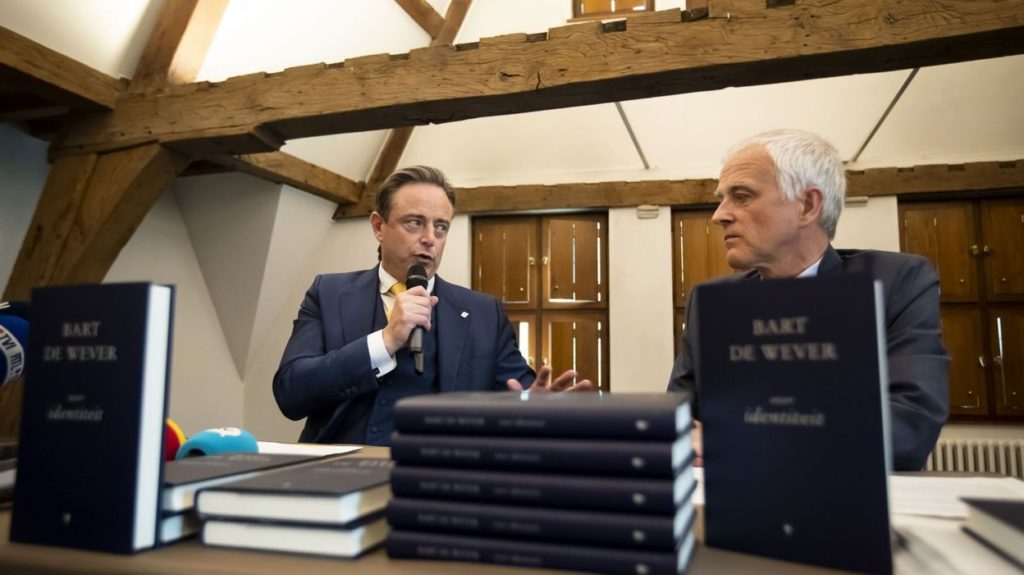Nieuw-Vlaamse Alliantie (N-VA) leader Bart De Wever lays out his vision of what it means to be Flemish in a society eroded by “cultural relativism”, in a new book titled “Over identiteit” (“On Identity”). “We need a new code to reinvent ourselves as a community,” the conservative candidate for the post of Flemish Minister President explains.
De Wever outlines the history of the European continent, opening each of his chapters with a quotation in Latin. He is particularly critical of the way migration has been approached in recent years, which hardly comes as a surprise. He sees today’s society as one made up of communities that are closed instead of gradually coalescing into a “we”.
For De Wever, there is no community without a “dominant culture”. In the European context, this is based on the Enlightenment, the philosophy that gave rise to modernity and spread through Europe from the second half of the 17th Century.
"A dominant culture dominates, but does not constrain,” he writes. “No individual can or ought to feel obliged to declare himself fully in agreement with the principles of the Enlightenment.”
However, “the dominant culture must be accepted as the foundation of the organisation of our public culture,” De Wever stresses. “That means that society bases itself on this rule to choose the way it organises public life and that a citizen’s private life is of secondary interest.”
The president of the nationalist party no longer believes in Belgium as a community. He feels Flanders is the referential framework for Flemmings. “The Flemish cultural community is today the most relevant framework in which we live our identity,” he writes. “Our national identity is Flemish, but it can aspire ultimately to become European.”
This Flemish identity is based on four principles.
The first is the neutrality of the public authority, which supposes that “citizens derive no automatic right from their personal identity in the public culture”. An example of this is the ban on religious symbols in public education and the public service.
The second principle is based on the recognition of Dutch, “the language of the community” as an indispensable pre-condition for participating in public life.
The values of the Enlightenment as the “software” of public culture make up the third principle. These values include freedom, equality, solidarity, the separation of Church and State, rule of law and the sovereignty of the people, De Wever notes.
Principle number four is citizenship which, he stresses, “is not a paper rag that you offer to each and anyone as a welcoming gift.”
To acquire citizenship, you need to reside in the community for a certain time, know its language, prove that you participate in it. A “citizenship examination” ought to test whether these conditions are met. It must be capped by a ceremony in which the integration of the citizen as a new member of the community would be celebrated, according to the N-VA leader.
The Brussels Times

